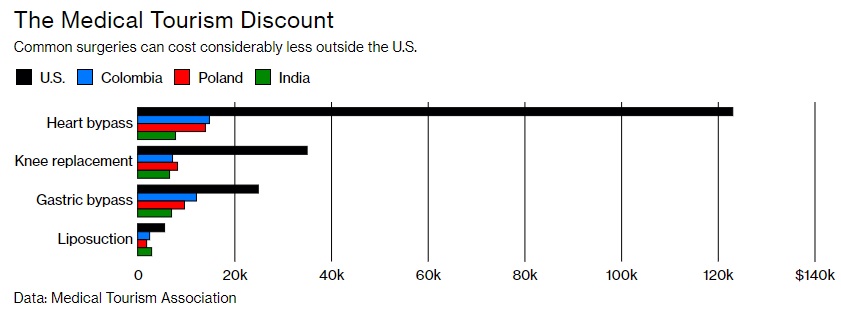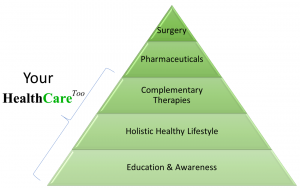Startups Boost Medical Tourism

About 14 million people spent $68 billion on medical tourism in 2016, according to consulting firm PwC. A growing number are Westerners headed to developing countries for cosmetic surgery or dental work, procedures that are less expensive and invasive than major operations and often aren’t covered by insurance. PwC predicts that by 2021 the medical tourism market will reach $125 billion. The growth will be built not on nose jobs and dental implants but on costlier and riskier procedures with longer recovery times, such as knee replacements and heart surgeries.
Startups from Berlin to Bangkok are trying to do for medical tourists what Airbnb or Hotels.com does for the general public. Instead of searching for a place to stay, users type in a medical procedure and get a list of clinics or doctors in nations that offer the surgery—scroll and click on a link to make an appointment. The companies charge providers a commission for bookings or a flat subscription fee to be on the platform. And they’re working on additional revenue streams, such as planning beach vacations for recuperating patients and their families, most likely by integrating their platforms with popular travel sites.
One of the ripest markets is the U.S., where the average household spent more than $10,000 on health care in 2017, the first time that number hit five figures anywhere in the world, according to the Organization for Economic Cooperation and Development. A knee replacement that costs about $35,000 in the U.S. could run $8,200 in Poland, $7,200 in Colombia, or $6,600 in India, the U.S.-based Medical Tourism Association reports.
Berlin-based Medigo GmbH has served 125,000 patients, says co-founder Ugur Samut. Many just want a second opinion, but Samut says “critical illness treatments” account for 30 percent of business, and he expects that number to hit 80 percent in five years.
For more information please see the original article: Startups giving a boost to medical tourism industry | BenefitsPRO
Our Model




